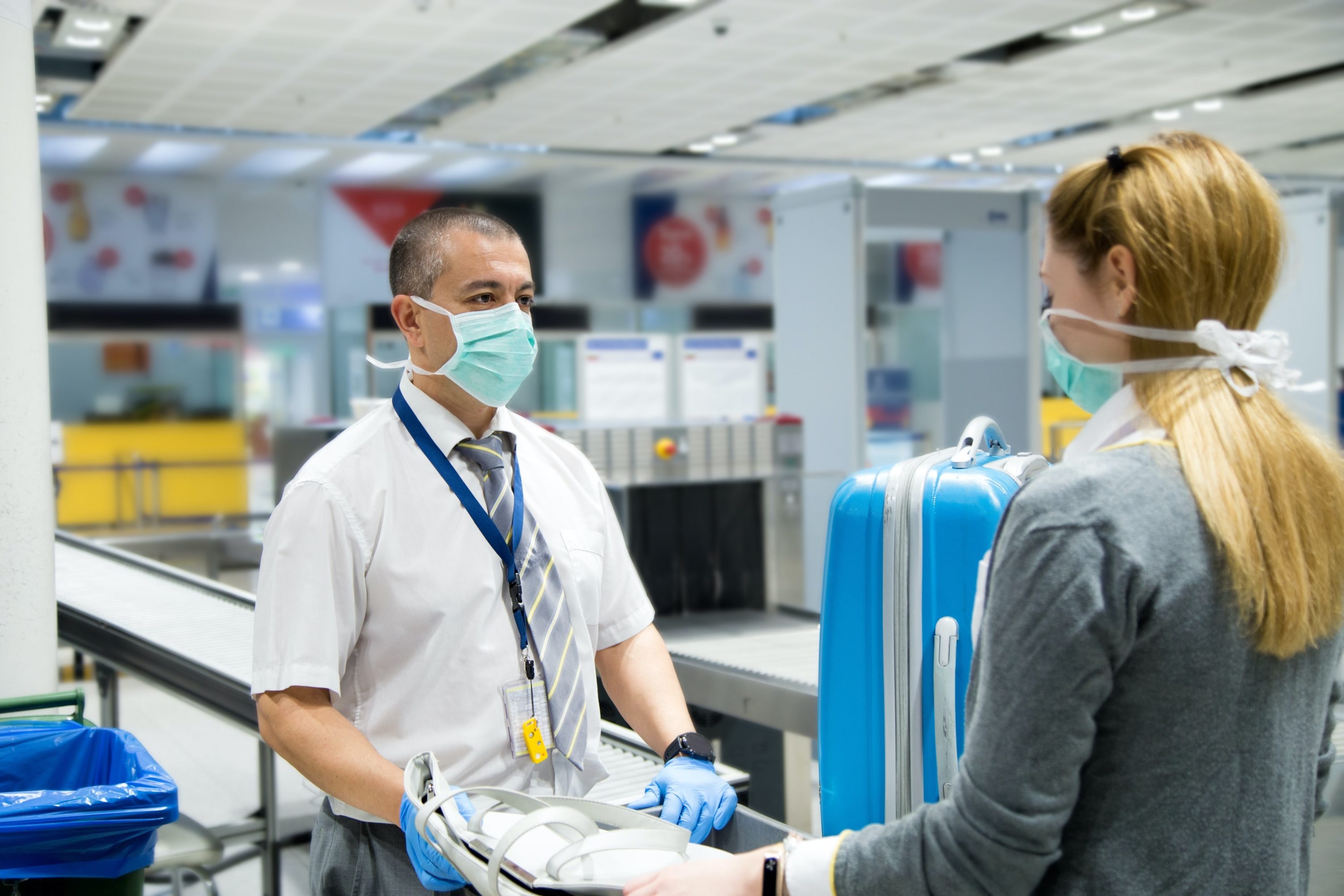In collaboration with The Commons Project, a non-profit public trust building global digital services and platforms for the common good, the World Economic Forum is supporting the development and launch of CommonPass, an initiative which aims to develop a global, interoperable framework to safely restore cross-border travel to pre-pandemic levels.

What is CommonPass?
The CommonPass system, backed by the World Economic Forum (WEF), is designed to create a common international standard for passengers to demonstrate they do not have coronavirus. The CommonPass is currently being trialled by Cathay Pacific Airways and United Airlines on certain flights between London, New York, Hong Kong and Singapore.
The project is being implemented in collaboration with government representatives from 37 countries around the world, as well as public and private partners.
What is the aim?
The aim of CommonPass is to enable safer, smoother travel by allowing travellers to securely carry their Covid-19 test result in a standardised format that is instantly recognisable to border officials at the country they’re entering.
How does it work?
Travellers would take a Covid-19 test at a certified lab, upload the results to their phone, and complete any other health-related questionnaires required by the country they’re going to.
CommonPass checks the traveller has met the entry requirements and then generates a QR code that can be scanned by airline staff and border agents.
What is the current process?
At present, the majority of countries are using either quarantine on arrival or a requirement that travellers’ obtain a negative COVID-19 test a maximum 78 hours prior to departure.
What are the flaws with the existing process?
Existing pre testing – Covid-19 PCR test results are frequently printed out, with the results often obtained from unknown or uncertified labs, and written in a foreign language that border agents can’t understand.
Quarantine – Most arrivals to the UK currently have to quarantine for a fortnight, with only around 45 countries on the country’s quarantine-free “travel corridor” list. This has bought tourism and business travel to standstill with airlines reporting at less than 30% capacity. In addition SAGE has cited that only ‘around 20% of those reporting symptoms of Covid-19 in England fully comply to self isolating.
Why is it needed?
COVID19 related restrictions has bought tourism and business travel to standstill with hotels and airlines operating at less than 50% capacity. The UK travel and tourism industry worth over £240 billion just under 10% of UK GDP and supporting almost 3.8 million jobs, which is around 11% of the total UK number.
Business travelers globally spent £40bn on airlines, hotels, ground transportation, food and other travel services in the UK. Half of that was spent from visitors from just two countries which are currently subect to quarantine restrictions, the United States and China.
- Face-to-face requests are 34 times more powerful than a request sent over email (Harvard Business Review).
- Companies realise $12.50 in incremental revenue for every dollar invested in business travel (Oxford Economics).
- An estimated 28% of current business would be lost if business travel were suddenly cut off (Oxford Economics).
- However, only 13% of corporate travel managers actively measure trip success rate and trip ROI (ACTE).
The Issues with CommonPass
There is no problem-free solution which eliminates risk, disruption and cost.
At present, COVID19 PCR tests are run by private companies and cost on average £120 per person. There is also an issue of availability as the centres are in major cities. In addition, there is still the risk of contracting the virus in up to 78 hours prior to departure. Therefore, although a huge step in the right direction by coordinating country approach, CommonPass alone is not a silver bullet.
What could the future look like?
A rapid test produced for free, at the airport prior to departure with the result loaded on CommonPass would open travel greatly in comparison today.
United Airlines is to run a four-week-long pilot programme offering passengers on its New York Newark-London Heathrow route rapid pre-departure tests for Covid.
From 16 November to 11 December, all passengers and crew members on United flight 14, which departs Newark for London Heathrow at 8.15pm on Mondays, Wednesday and Fridays, would be offered a free test.
United will be using a molecular Abbott ID Now test which can yield a result in 13 minutes. In a study of 955 individuals in which 23 people tested positive for Covid using lab-based PCR tests, the Abbott test picked up 21 of the positive patients. This means the test has 91.3 per cent sensitivity (correctly identifying those with the virus) and 100 per cent specificity (correctly identifying those that are healthy).
To help you navigate the changes of business travel, we’ve created the brand-new Traveller Toolkit. This invaluable online resource is packed full of easy-to-use guides and checklists for every stage of every journey. We detail exactly what you need to know and do before, during and after your trip.
You’ll also find innovative and interactive virtual trips, which walk you through each step of being at the airport, on the train and in the hotel. You can even check the travel restrictions and health status of your destination with our comprehensive COVID-19 Country Tracker, updated five times daily to ensure you have the very latest information to help keep you and your travellers safe.
Travel is changing. But with common sense and a good TMC behind you, travellers should have the confidence to once again take to the skies. It’ll soon be business as (un)usual.

